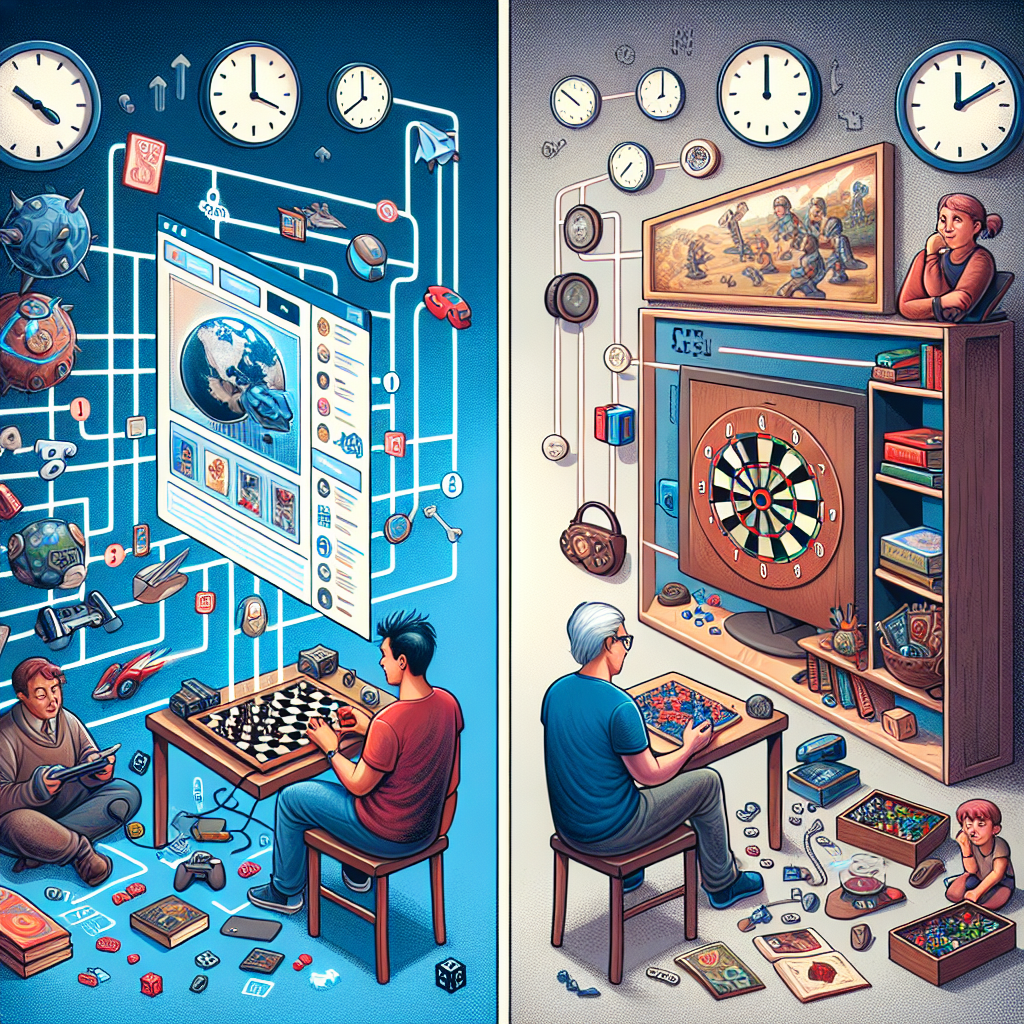Online Games vs Traditional Games: Which Wins in Today’s World?
In the dynamic landscape of entertainment, the debate of online games vs traditional games continues to shape how people of all ages spend their leisure time. With the rapid advancement of technology and the rise of digital platforms, online gaming has become a dominant force, drawing millions of players globally. However, traditional games, whether played indoors or outdoors, still hold a special place in many hearts. Let’s explore the differences, similarities, benefits, and drawbacks of these two popular forms of play, and how they influence social interaction, cognitive skills, and overall well-being.
Defining Online Games and Traditional Games
What Are Online Games?
Online games are video games that connect players via the internet. These can range from massive multiplayer online role-playing games (MMORPGs) to casual puzzle games on social media platforms. Online gaming enables players to compete or collaborate with others worldwide, breaking geographical barriers. Popular examples include battle royales, eSports, and virtual worlds.
What Are Traditional Games?
Traditional games refer to those that are played without digital technology. These include board games like chess and Monopoly, card games, outdoor activities like tag, hide-and-seek, or hopscotch, and even sports such as soccer and basketball. Traditional games usually require physical presence and direct interaction among players, fostering face-to-face communication and teamwork.
Key Differences: Online Games vs Traditional Games
-
Accessibility:
- Online games can be accessed any time and from almost any location with an internet connection, offering unparalleled convenience.
- Traditional games often require physical materials, specific locations, or gathering of participants, which can limit spontaneous play.
-
Social Interaction:
- Online multiplayer games allow players to connect with friends or strangers globally, but sometimes lack the depth of in-person interaction.
- Traditional games promote direct communication, teamwork, and often strengthen real-life friendships and family bonds.
-
Physical Activity:
- Most online games are sedentary, requiring minimal physical movement.
- Many traditional games, especially outdoor and sports games, encourage physical exercise and motor skill development.
-
Learning and Skill Development:
- Online games often enhance reflexes, strategic thinking, and problem-solving abilities, sometimes even improving digital literacy.
- Traditional games cultivate social skills, patience, manual dexterity, and sometimes cultural knowledge through folk games and sports.
-
Cost and Equipment:
- Online games may require a computer, console, or mobile device, as well as internet access and sometimes in-game purchases.
- Traditional games can often be played with minimal or low-cost equipment, making them more accessible in certain communities.
Benefits and Drawbacks of Online Games
Advantages
- Instant access to a vast library of games and genres.
- Opportunities for global competition and collaboration.
- Enhanced cognitive skills such as quick decision-making and hand-eye coordination.
- Frequent updates and new content to keep players engaged.
Disadvantages
- Potential for online addiction and excessive screen time.
- Cyberbullying and security threats in online communities.
- Less physical activity, which may lead to health issues.
- In-game purchases can become expensive over time.
Benefits and Drawbacks of Traditional Games
Advantages
- Encourage physical activity and outdoor play.
- Foster real-world social skills and teamwork.
- Often inexpensive and easy to set up.
- Promote cultural heritage and intergenerational bonding.
Disadvantages
- Limited by availability of participants and physical space.
- Some games can become repetitive or less engaging for tech-savvy youth.
- Less opportunity to connect with a diverse, global audience.
Online Games vs Offline Games: Similarities and Overlaps
The lines between online games vs offline games are increasingly blurred. Many popular video games offer both online multiplayer modes and offline single-player campaigns. Board games are also being adapted into digital formats, and certain traditional games are played through video calls or virtual platforms. Both types of games share the goal of entertaining players, reducing stress, and providing opportunities for learning and connection.
Which Is Better: Online Games or Traditional Games?
The answer depends on individual preferences, lifestyle, and goals. For those seeking global interaction, fast-paced action, and ever-evolving gameplay, online games are ideal. For families, educators, or those prioritizing physical health and real-world relationships, traditional games offer irreplaceable value. Ultimately, a balanced mix of both can provide the richest experience, catering to the needs of mind, body, and social life.
Frequently Asked Questions
- What are the main benefits of online gaming?
- Online gaming offers global connectivity, a wide selection of games, and opportunities to develop strategic and cognitive skills.
- Are traditional games still relevant today?
- Absolutely! Traditional games remain vital for social interaction, physical health, and preserving cultural traditions.
- Can online and traditional games be combined?
- Yes. Hybrid games and virtual adaptations of classic board or physical games are becoming increasingly popular, bridging the gap between both worlds.
Conclusion
Whether you’re a fan of action-packed online multiplayer games or enjoy the camaraderie of traditional board games, both forms of play have unique benefits. Embracing a variety of online games vs traditional games can enrich your leisure time, boost cognitive and social skills, and create lasting memories. In today’s connected world, the best choice may simply be a healthy mix of both!



